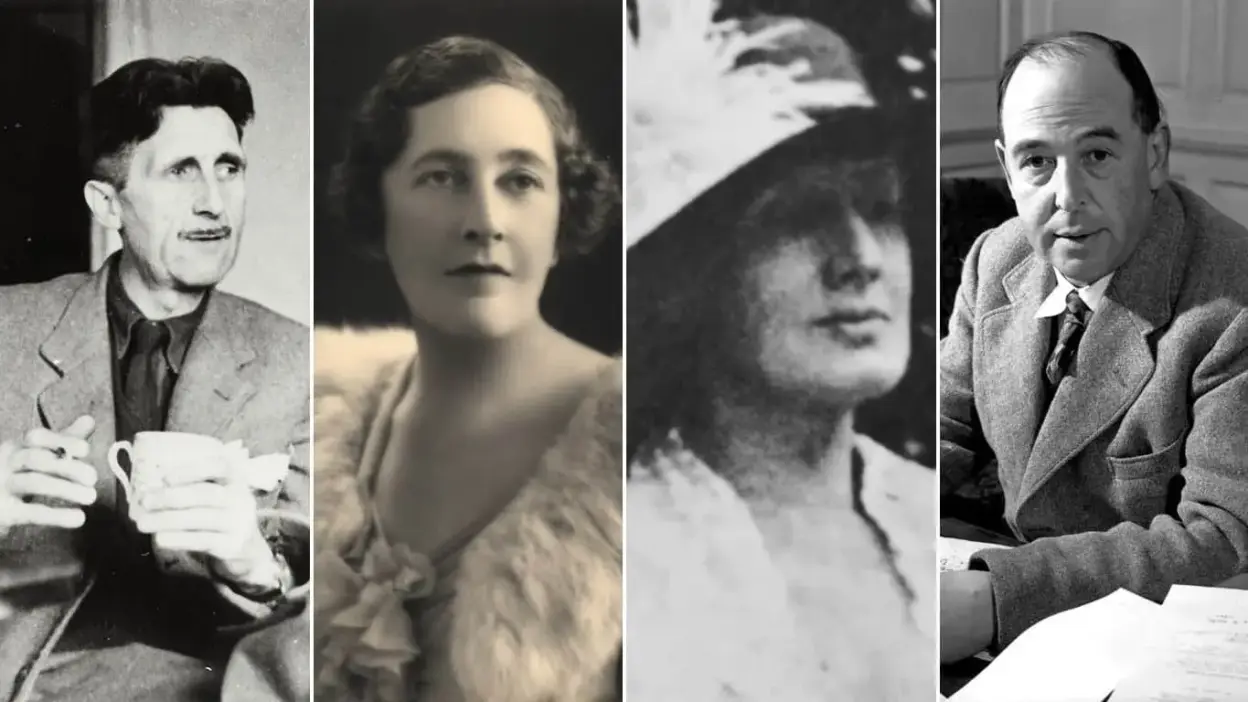10 Best British Authors of All Time: The literary world owes much to the rich tapestry of British literature, a realm filled with iconic characters, ground-breaking narratives, and profound insights into the human condition. From the poetic beauty of Shakespeare’s sonnets to the biting wit of Oscar Wilde’s plays, British writers have shaped and defined literature across centuries. Their works have transcended borders, influencing readers and writers globally, and continue to be a vital part of literary studies and popular culture.
10 Best British Authors of All Time | Top 10 British Writers
William Shakespeare (1564-1616)
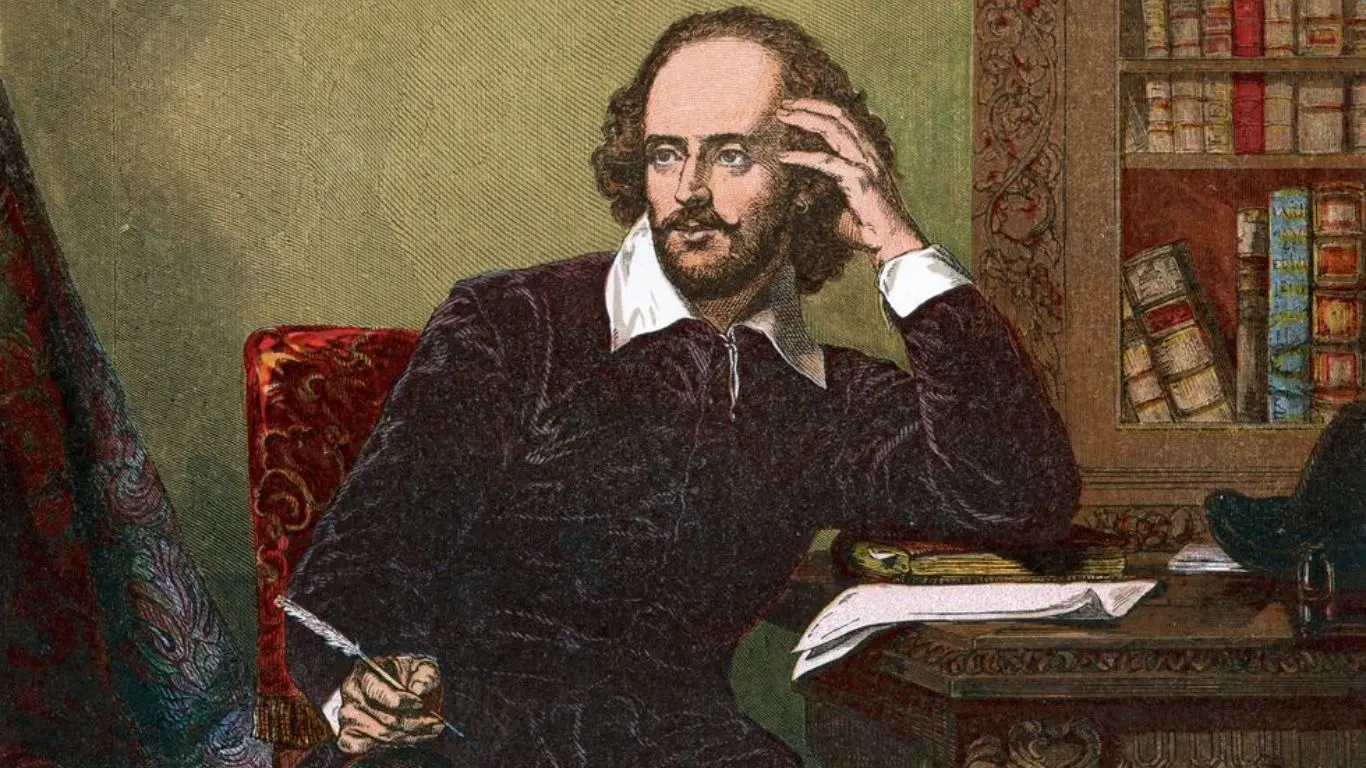
Shakespeare is perhaps the most well-known and greatest writer in the history of English literature. Born in Stratford-upon-Avon, England, he penned 39 plays, 154 sonnets, and several narrative poems. His works are renowned for their profound insights into human nature, their poetic brilliance, and their universal themes. Shakespeare’s plays, ranging from tragedies like “Hamlet” and “Macbeth” to comedies like “A Midsummer Night’s Dream,” have become timeless classics, still performed and adapted worldwide.
His innovative use of language, including the creation of new words and phrases, has had a lasting impact on the English language. Shakespeare’s influence extends beyond literature into various fields such as theater, cinema, and even psychology. His ability to delve into the complexities of emotion, power, love, and ambition ensures his place as an unparalleled literary giant whose works continue to resonate with audiences of all ages.
Jane Austen (1775-1817)
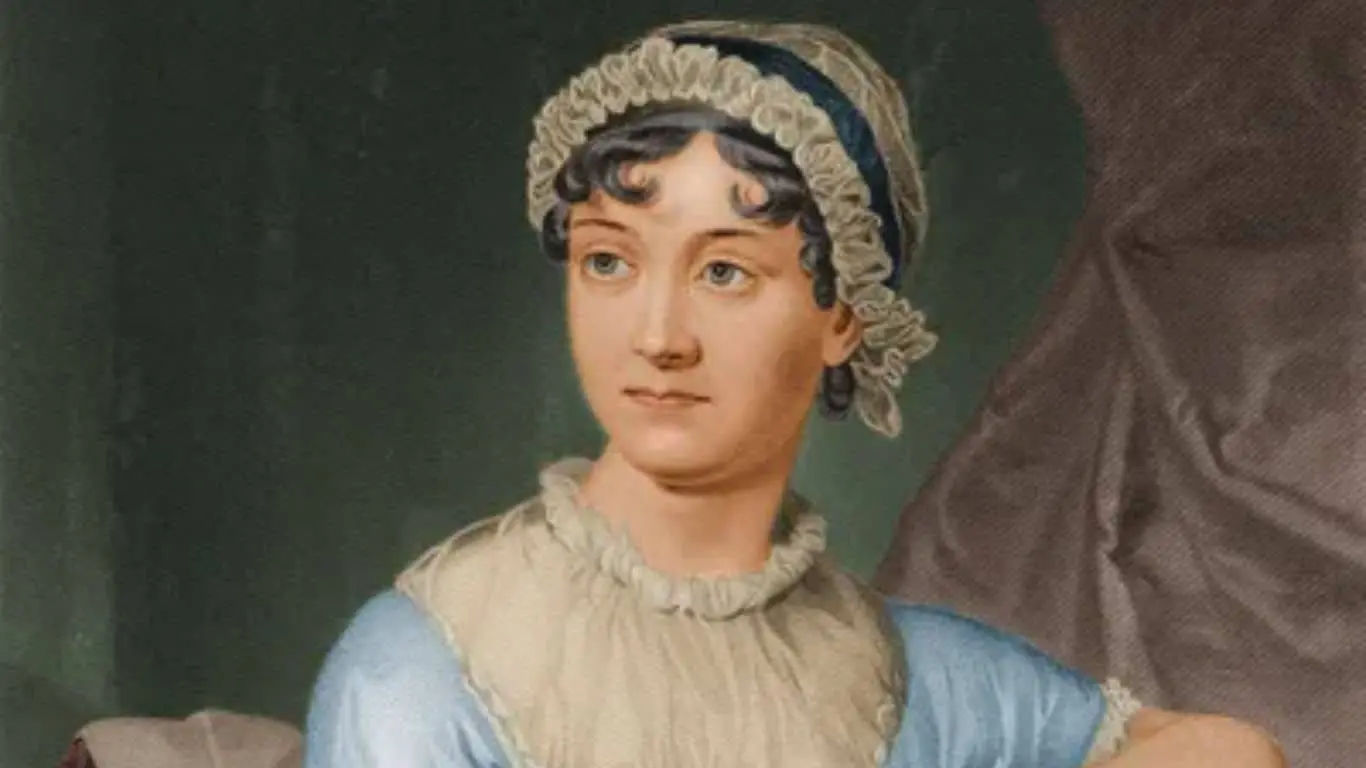
Jane Austen is one of the most prominent figures in English literature, renowned for her keen observations of social manners and relationships. Born in Hampshire, England, Austen’s Novels are set among the British landed gentry and explore themes of love, marriage, morality, and social standing. Her writing style is characterized by irony, wit, and a masterful command of the English language. Austen’s most celebrated works include “Pride and Prejudice,” “Sense and Sensibility,” “Mansfield Park,” and “Emma,” each providing a nuanced exploration of human nature and societal norms.
Although her works were published anonymously during her lifetime and received limited recognition, they have since gained enormous popularity and critical acclaim. Jane Austen’s novels continue to be widely read and adapted, and her influence on literary realism and modern storytelling endures, solidifying her status as a literary icon.
Charles Dickens (1812-1870)
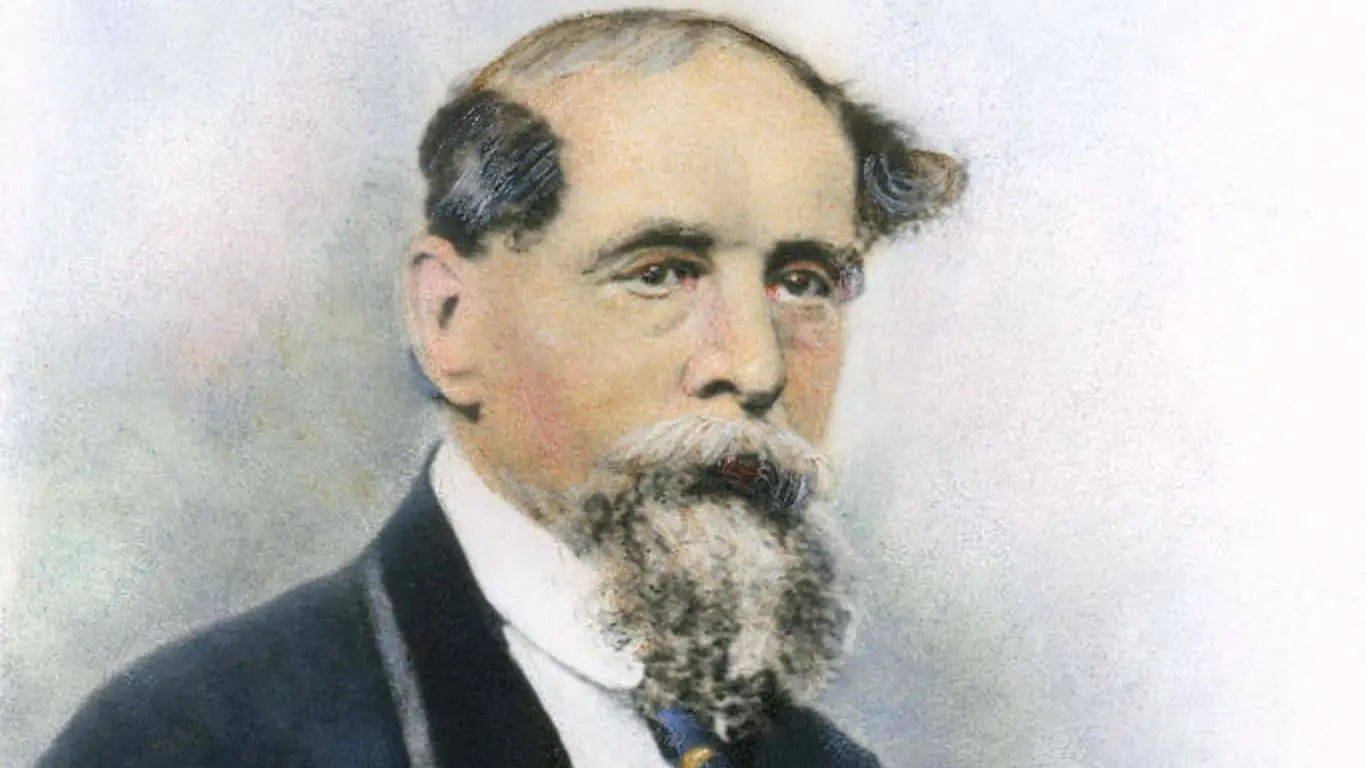
Dickens stands as one of the most influential writers of the Victorian era, leaving an indelible mark on English literature. Born in Portsmouth, England, Dickens’s literary career began as a writer for serialized publications. His vivid storytelling, memorable characters, and profound social commentary propelled him to fame. Works such as “Oliver Twist,” “David Copperfield,” “Great Expectations,” and “A Tale of Two Cities” showcase his ability to depict the struggles and triumphs of ordinary people.
Dickens’s novels often address social injustices, poverty, and inequality, reflecting his deep concern for the welfare of the marginalized in society. His unique blend of humor, sentimentality, and sharp observations on human nature has made his works timeless classics. Charles Dickens’s contributions to literature continue to be celebrated, studied, and adapted, and his legacy as a master storyteller endures in the hearts and minds of readers around the world.
Emily Brontë (1818-1848)
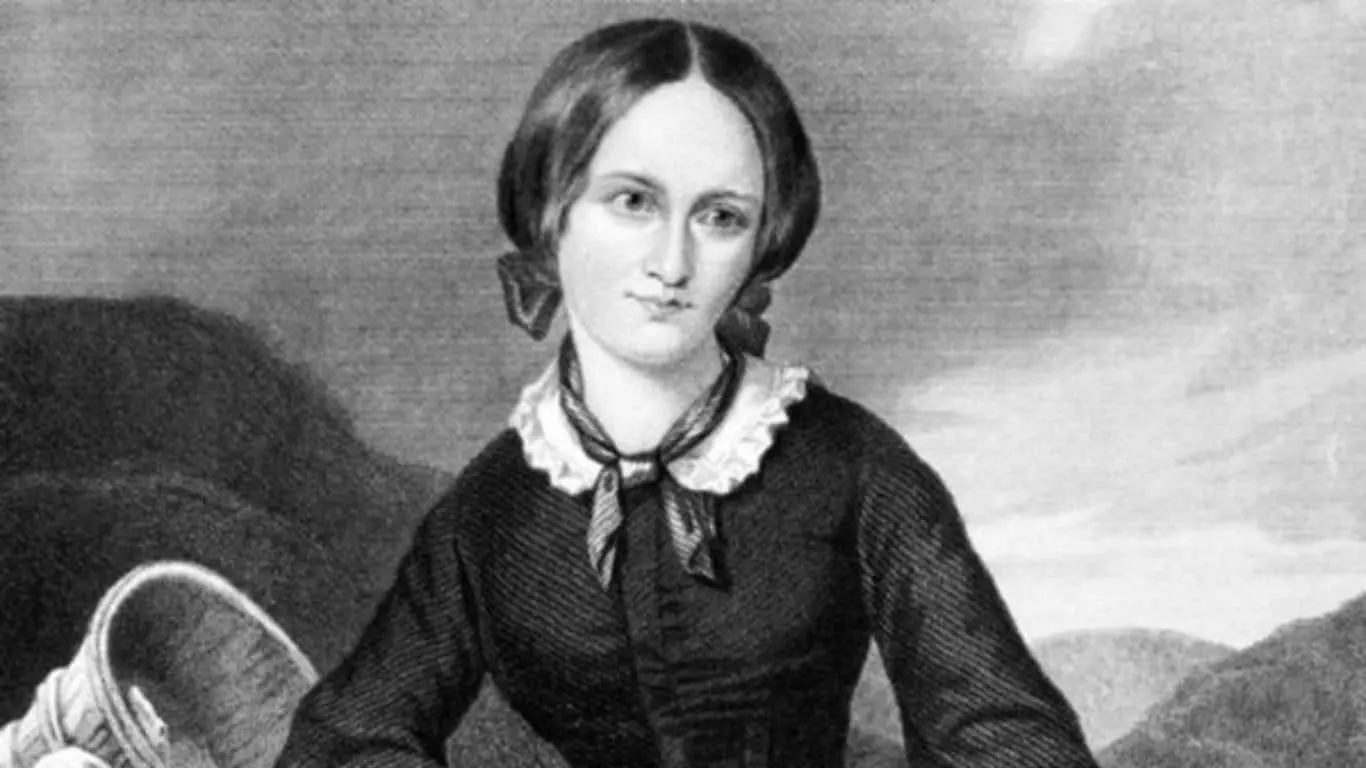
She is best known for her only novel, “Wuthering Heights,” a dark and passionate tale of love and revenge on the Yorkshire moors. Born in Thornton, West Yorkshire, England, Emily was the fifth of six children in the Brontë family. Along with her sisters Charlotte and Anne, she was one of the famous literary Brontë sisters. “Wuthering Heights” was published in 1847 under the pseudonym Ellis Bell and received mixed reviews at the time, with some critics shocked by its stark depiction of mental and physical cruelty.
Emily’s poetic talent is also noteworthy, contributing to the small body of poems that survive her. Tragically, Emily died at the young age of 30, leaving behind a work that would eventually be recognized as a masterpiece of English literature. Her unique voice, intense emotion, and complex characters continue to captivate readers, ensuring her place among the great literary figures.
Virginia Woolf (1882-1941)

She was a pivotal figure in modernist literature, known for her experimental writing techniques and insightful explorations of the human psyche. Born in London, England, Woolf was a central member of the Bloomsbury Group, an influential literary circle of the time. Her novels, including “Mrs. Dalloway,” “To the Lighthouse,” and “Orlando,” are celebrated for their stream-of-consciousness narrative, rich imagery, and deep psychological insight.
Woolf’s works often explore themes of feminism, mental illness, and the inner workings of the mind, reflecting her own struggles with mental health. She was also an astute literary critic and essayist, her most famous work in this area being “A Room of One’s Own.” Virginia Woolf’s innovative contributions to literary form and her unflinching exploration of the complexities of human emotion have solidified her reputation as one of the most significant and revolutionary writers of the 20th century.
George Orwell (1903-1950)
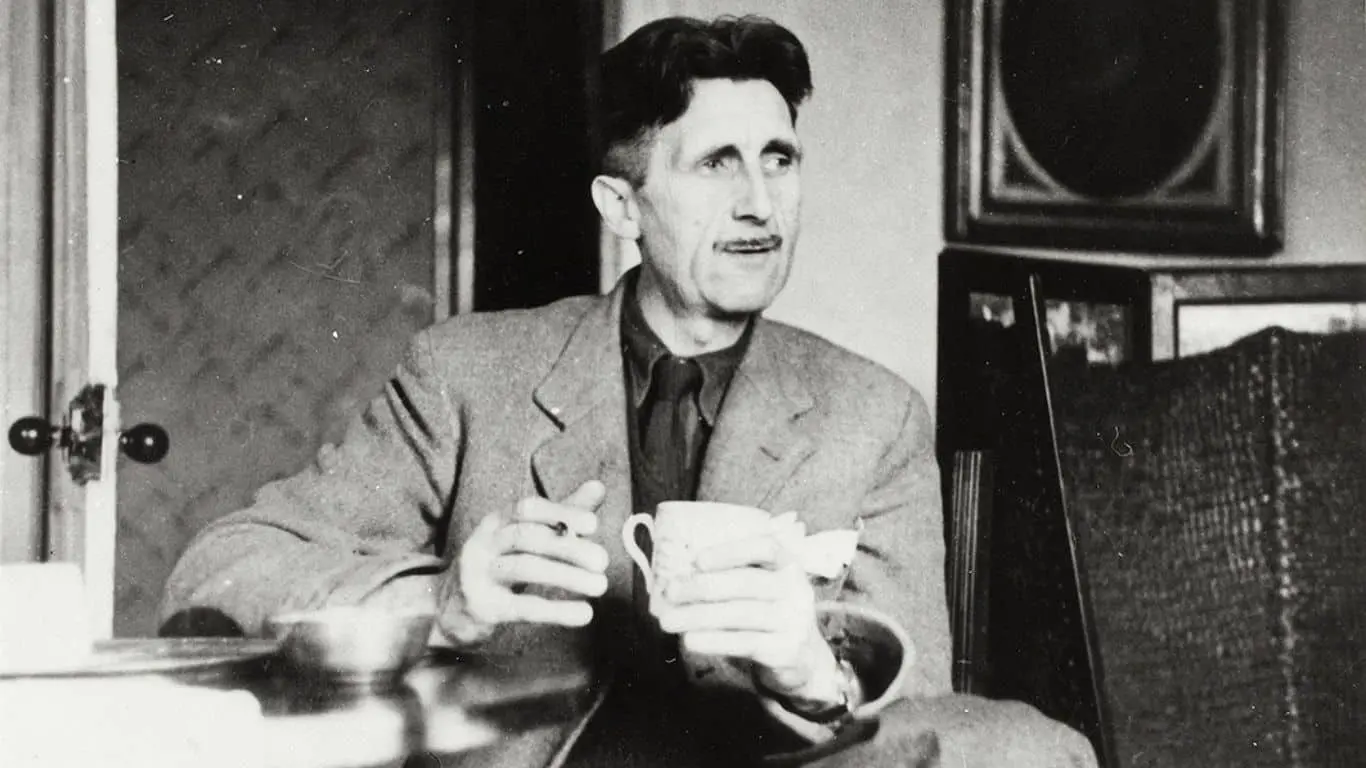
Orwell, born Eric Arthur Blair in Motihari, India, was an English novelist, essayist, journalist, and critic, best known for his works that address themes of totalitarianism, surveillance, and political ideology. Orwell’s “Animal Farm,” a satirical allegory of Soviet totalitarianism, and “1984,” a dystopian novel exploring the dangers of totalitarian rule and surveillance, remain seminal works in the literary canon. Orwell’s writing is characterized by clarity, intelligence, and a willingness to engage with political and social issues.
While his journalistic works and essays, such as “Homage to Catalonia” and “Politics and the English Language,” demonstrate his deep commitment to democratic socialism and his opposition to totalitarianism in all its forms. Orwell’s ability to craft compelling narratives while grappling with complex political themes has made him one of the most influential writers of the 20th century, with his works continuing to resonate in contemporary society.
CS Lewis (1898-1963)
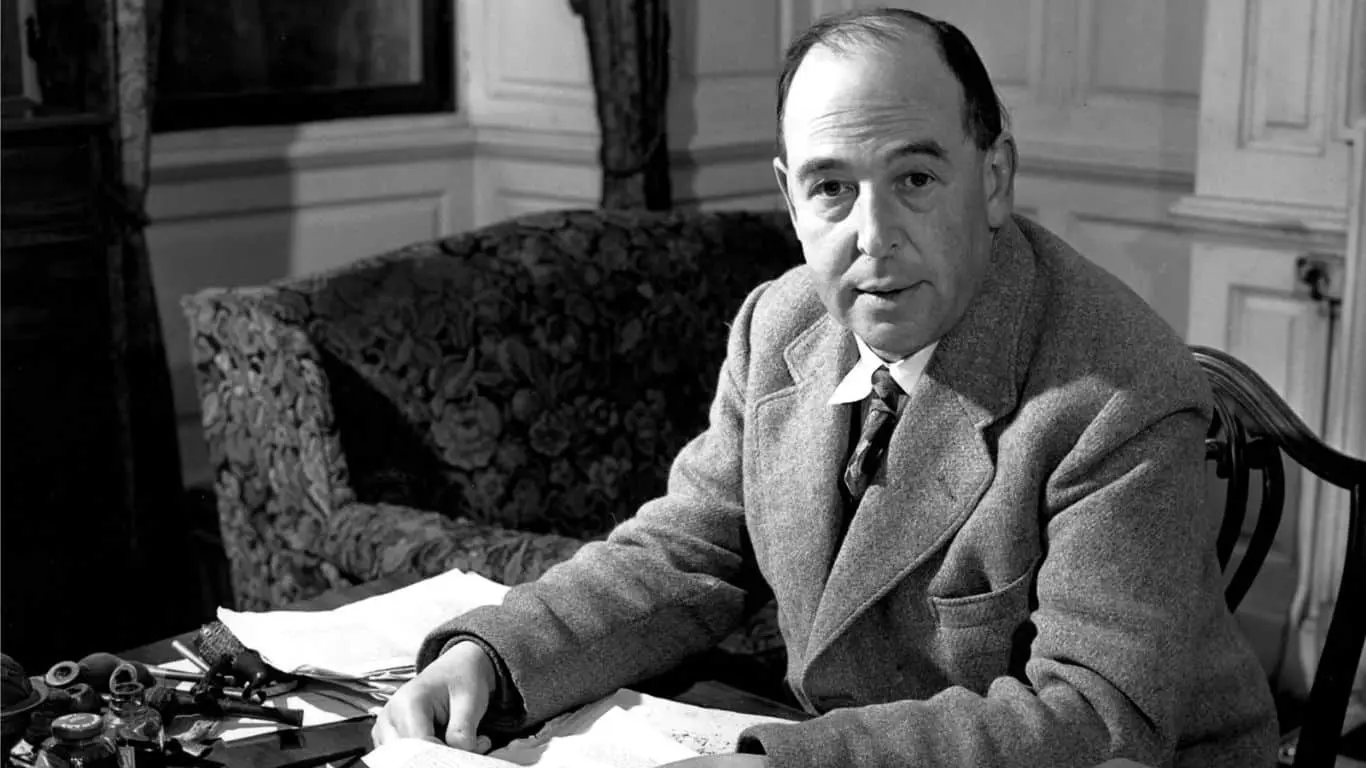
Lewis, was a prolific writer, scholar, and Christian apologist. Born in Belfast, Northern Ireland, Lewis taught at both Oxford and Cambridge Universities and was a contemporary and friend of J.R.R. Tolkien. He is perhaps best known for “The Chronicles of Narnia,” a seven-book series that has captivated readers of all ages with its imaginative storytelling, allegorical themes, and moral lessons. Lewis also wrote important works on Christian theology, such as “Mere Christianity” and “The Problem of Pain,” in which he explored and explained his faith.
His writings on literature, including literary criticism and studies on medieval and Renaissance literature, remain significant scholarly contributions. Lewis’s ability to write across genres and his profound influence on both children’s literature and Christian thought mark him as one of the most versatile and respected writers of the 20th century. His works continue to be widely read and studied, reflecting his enduring legacy.
George Eliot (1819 – 1880)
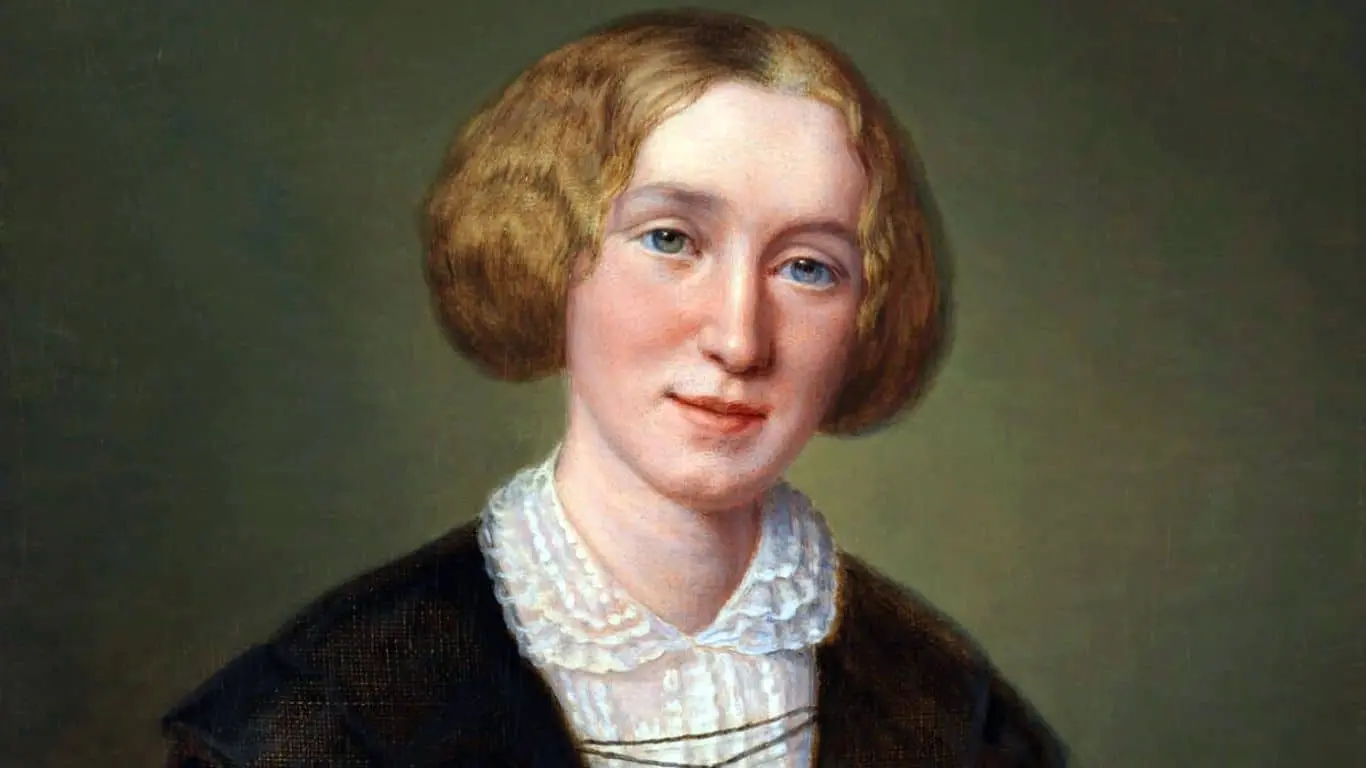
Next is George Eliot, which is the pen name of Mary Ann Evans who was an innovative and influential novelist of the Victorian era. Born in Nuneaton, Warwickshire, England, Eliot chose a male pen name to ensure her works were taken seriously at a time when female authors were often marginalized. Her novels, known for their psychological insight and complex characters, often explored themes of morality, love, and social change. Notable works such as “Middlemarch,” “Silas Marner,” and “The Mill on the Floss” offer a realistic portrayal of rural life and a keen analysis of human nature.
Eliot’s writing style, characterized by eloquence and depth, contributed to the literary realism movement. Her focus on character development and social commentary has left a lasting impact on English literature. George Eliot’s contributions to the literary world continue to be celebrated, and her works remain essential reading for scholars and general readers alike.
Ian Fleming (1908-1964)
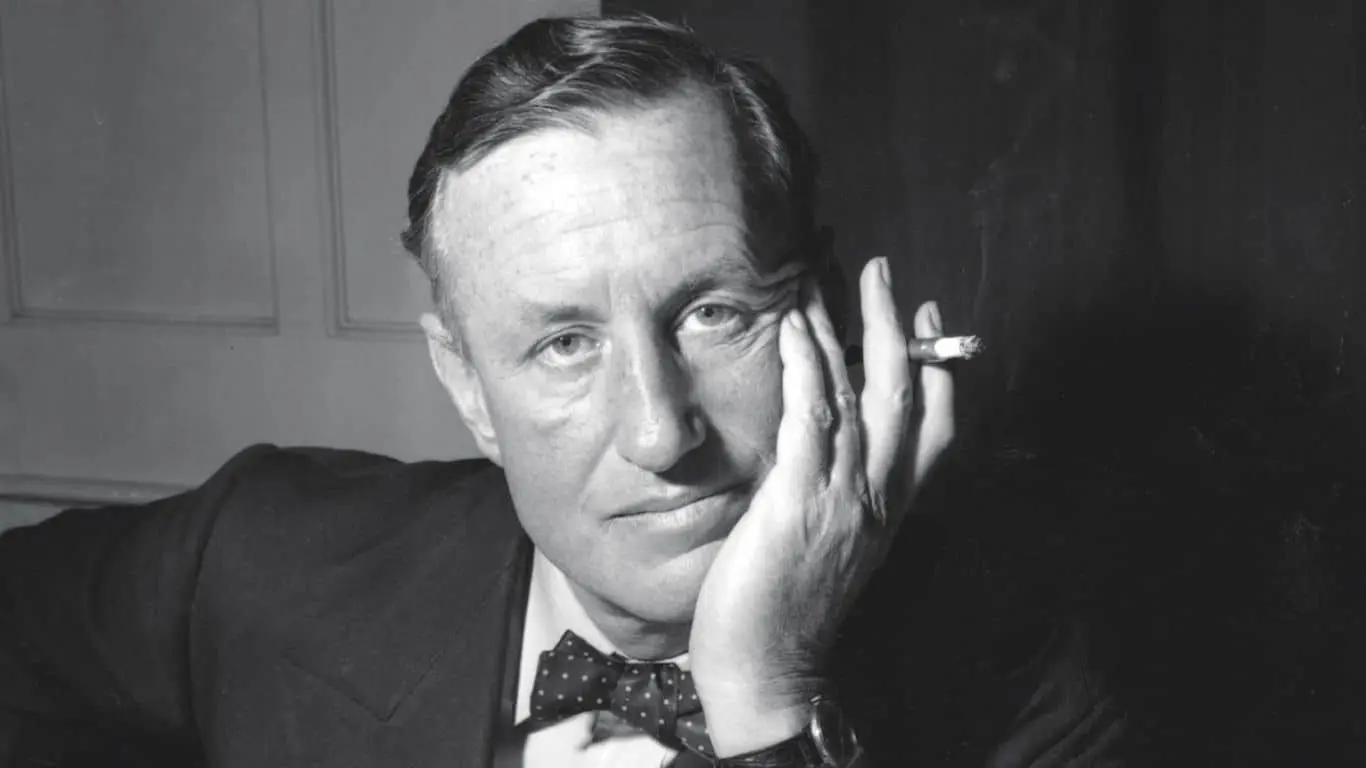
Fleming was a British author, journalist, and naval intelligence officer, most famous for creating the iconic character James Bond. Born in London, England, Fleming’s series of spy novels featuring the suave and sophisticated British Secret Service agent 007 have become some of the world’s best-selling fiction. Beginning with “Casino Royale” in 1953, Fleming wrote 12 novels and two short story collections featuring Bond, blending his own experiences in intelligence with his imaginative flair.
James Bond became synonymous with glamour, intrigue, and action, influencing the spy genre and leading to a hugely successful film franchise. Fleming’s writing is marked by its fast-paced storytelling, attention to technical detail, and ability to capture the geopolitical climate of the Cold War era. Ian Fleming’s creation of James Bond has left an indelible mark on popular culture, ensuring his place among the significant figures in 20th-century literature.
Agatha Christie (1890-1976)
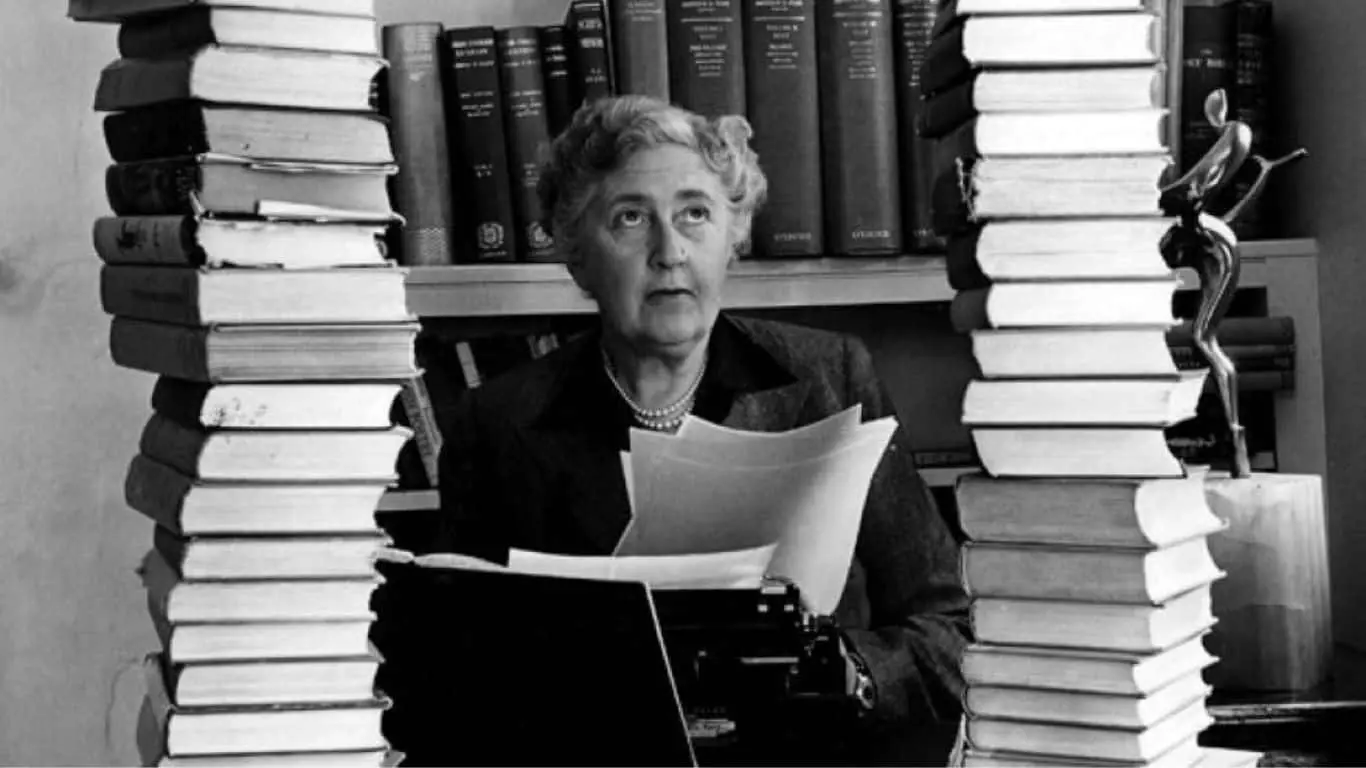
Last on our list is the “Queen of Mystery,” Agatha Christie, whose extraordinary body of work has made her one of the most celebrated and widely read authors in literary history. Born in Torquay, England, Christie’s writing career spanned over five decades, producing 66 detective novels, 14 short story collections, and numerous plays. She is best known for her meticulously plotted mysteries featuring detectives Hercule Poirot and Miss Marple. Works like “Murder on the Orient Express,” “The Murder of Roger Ackroyd,” and “And Then There Were None” have become classics of the genre.
Christie’s ability to craft intricate puzzles, coupled with her keen understanding of human nature, set a standard for detective fiction that remains unmatched. Her books have been translated into over 100 languages, and her influence on the mystery genre is profound. Agatha Christie’s status as the Queen of Mystery endures, testament to her unparalleled storytelling prowess.
Also Read: 15 Most Influential Authors of All Time

